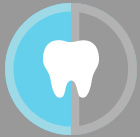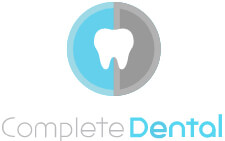DENTAL EXTRACTIONS GOLD COAST & BRISBANE
Dental Extractions
A problematic tooth may need to be removed to ensure that the rest of the mouth can continue natural, healthy function.
Adult teeth are supposed to last for your entire lifetime. Sometimes, this just isn’t the case. A dental extraction is when a tooth is pulled from the mouth and can occur for a number of reasons. These might include an infected tooth that cannot be saved by a root canal treatment, making space in the mouth for orthodontics or problematic wisdom teeth.
What happens when a tooth is pulled?
Although it can sound daunting having a tooth pulled out, the general anaesthesia used during the procedure will ultimately eliminate any pain or discomfort through sedation.
First, your dentist will remove any part of the gum or bone that may be blocking or covering the tooth – usually for teeth that are still fully, or partially beneath the gum line. Using forceps, the tooth will gently be rocked, loosening it from the jaw bone and the attached ligaments. If the tooth refuses to move, your dentist may carefully remove the tooth in pieces. The affected area will be ready to be stitched, usually with dissolvable stitches.
Is pulling a tooth out painful?
The procedure itself is virtually pain-free, with the only small discomfort potentially coming from the anaesthetic needle. It is normal to experience swelling and tenderness around the affected area in the days following the surgery as the body begins the healing process. You may be familiar with the ‘chipmunk face’ some people experience. During this time, your dentist may prescribe pain-relief medication and suggest a diet of soft, nutritious foods to ensure your comfort.
One of the more common procedures for teeth extraction involve removing the teeth at the very back of your mouth, called ‘wisdom teeth.’
What are wisdom teeth?
Your wisdom teeth are the third set of molars in the back of the mouth and can begin to surface through the gums around the ages of 17-25.
Do I need to have my wisdom teeth pulled?
Your dentist will examine your mouth and take X-Rays to determine whether your wisdom teeth will need to be extracted. Sometimes, there simply isn’t enough room in the jaw to accommodate for the extra four teeth and the wisdom tooth can begin to grow at an angle. These wisdom teeth can then impact the surrounding teeth and soft tissues, causing issues like crowding, decay irritation and infection. In this case, extracting the wisdom teeth may be the only solution.
What are the symptoms of needing my wisdom teeth removed?
Usually, the most common sign for needing wisdom teeth removed is significant pain and discomfort where the tooth is coming through. This might prevent you from opening your mouth fully. Other symptoms might include swollen, tender or bleeding gums, jaw pain or bad breath. Not everyone needs their wisdom teeth pulled, despite how common it may seem. Sometimes, the teeth either never come through, don’t exist in the first place or simply emerge and settle comfortably in to place.
If you are having problems with painful teeth, or think your wisdom teeth might be a problem, please don’t hesitate to contact our friendly team at Complete Dental in Coorparoo & Elanora. They can help you with any questions or concerns you might have, or to book an appointment.










